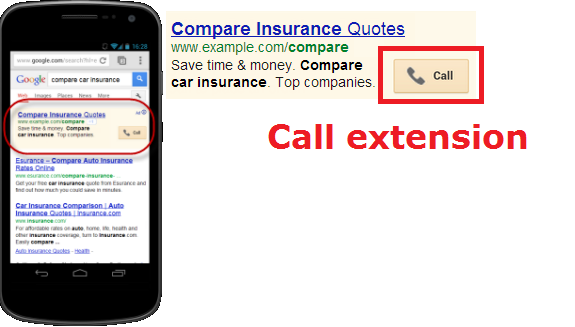In my last two articles, I have looked at the full range of ad extensions an advertiser has available to them in pay per click 
Before we begin, I have to mention one more ad extension I forget to include in the part 1 and part 2 articles being the previous visit ad extension. This extension shows up underneath the description of your PPC advert and informs the web user if they have clicked through to your website previous before this. It will tell the web user how many times they have visited your website and when the last time was.
The first thing we need to make clear is that some of the ad extensions in AdWords are automated. This means that if your campaign meets the right criteria, Google will display the following adverts without you choosing:
- Consumer rating
- Previous visits
- Seller rating
- Social annotation
This is not a bad thing at all to assume, though. What you need to remember is that Google picks your campaign to use these ad extensions if you ‘have the right criteria’. Google will only ever include these extensions if they feel it will boost your performance.
From this, below are the remaining ad extensions and when you should use them:
- Call extension – To be used when you have a customer service or a phone number which web users will find useful ringing. If you choose to go down this road, make sure the answer machine is not computerised as this will lose the web user patience. Only use this extension for mobile campaigns.
- App extension – This can be used for one of two reasons. The first is for advertising campaigns that are directly trying to sell an app (for example, if Candy Crush Saga had a PPC campaign, they would use this extension). The other reason is to get web users to download app versions of mobile optimised websites such as Amazon and eBay can do.
- Location extension – Hopefully, this will be self explanatory. The location extension should be used for campaigns that have a solid location that web users will need to go to get a conversion (such as a coffee shop or restaurant).
- Site links extension – This extension can be used by just about anyone (which is why it is used so much). Think of site links as extra landing pages that help target the web users more.
- Review extension – If you have great reviews from other websites on the internet, show it off! That is exactly what this extension is for.




